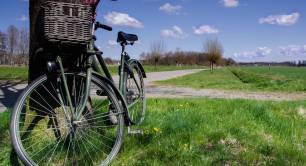Social investment in the South West: building from the bottom-up
The South West of England is something of a social investment pioneer. Sarah Forster, CEO and founder of the Good Economy Partnership, Dan Gregory, a leading social enterprise advisor, and Jon Sidall from the South West Academic Health Science Network offer insight from the frontline.
The South West region of England is home to Triodos Bank, to social investment intermediaries Resonance and Co-operative and Community Finance, to community shares guru Jim Brown, to scores of Community Land Trusts and to the UK’s biggest crowdfunding platform – the cunningly named Crowdfunder. The Community Shares Unit and Ethex have identified Bristol, Stroud, Frome and Totnes as community shares and positive investing hotspots, strengthening their reputation as a sort of ‘axis of lentil’. This emerging activity is built on a strong and long tradition of social enterprise and more recently the emergence of the world famous Eden Project, Fifteen Cornwall, many large health spin-outs and a host of community energy projects.
Meanwhile, the South West Academic Health Science Network (AHSN), which covers Somerset, Devon and Cornwall, is one of fifteen networks set-up by NHS England to change the way the NHS identifies, develops and adopts new technologies. These networks have recently started to play a more important role in local health economies in the wake of the demise of the regional Strategic Health Authorities, facilitating collaboration between the NHS, academia, the private sector and others. The SW network has been working with five local authorities to identify effective models of service delivery within the area, led by Voluntary, Community and Social Enterprise (VCSE) organisations. There is a real sense across the region that VCSE organisations have even more to offer to help address the challenges faced by the NHS and local councils – through their ability to connect with people others may find ‘hard to reach’ and provide services that could help relieve pressures on the health and care system.
So in this context, the Good Economy Partnership, working with the Real Ideas Organisation and the SW Forum – all based in the South West – have been helping the AHSN identify specific opportunities for the VCSE sector to play a more significant role and explore how models of social investment might attract new money to the peninsula. Of course, some critics suggest that while social investment is a nice idea, it has been rather driven by political and financial imperatives from the top down rather than demand from the grassroots. Conscious of this critique, justified or otherwise, the SW AHSN asked us to start with the customers that matter.
On one hand, listening to those who hold the purse strings and pay for the services we need – the commissioners in the NHS and in local authorities. Two critical themes emerged. First, how the elderly are cared for and how they might ‘age better’ – an issue across the country but particularly with the demographics of Somerset, Devon and Cornwall. Second, commissioners recognise the significance of the underlying determinants of health, such as unemployment and poor housing, which influence obesity, smoking and drinking behaviour and together, cause most of the problems that put pressure on the NHS.
We have a diversity of needs and solutions which require a mix of finance from public, social and private sources
On the other hand, we spoke to charities and social enterprises and characterised five models under which they might be able to step up to meet the need and commissioners’ priorities. Two of these models are familiar social investment territory – financing outcomes through payments by results contracts and social impact bonds; and scaling up existing VCSE organisations. But we also identified three other models which could respond to commissioner needs: developing community-based micro-providers supported by the likes of Community Catalysts CIC to harness personal budgets and deliver care in the community; bringing together new consortia and partnerships to respond to the way that public contracts are tending to aggregate; and co-creation of new public-social enterprises backed by assets to reimagine community hospitals, for example, or to develop new models of housing and care.
Only after building this picture of needs and solutions from the bottom-up have we now reached out to the investors, including a range of private, public and specialist social finance providers offering a mix of commercial, sub-commercial and subsidised capital. We think this is the right way round.
These conversations have strengthened our view that there is already plenty of finance out there for outcomes-based commissioning models and for VCSE organisations looking to scale-up. But finance can be scarcer for micro-enterprises; when it comes to risk capital to support new partnerships and consortia; for investment under £150,000; and for larger equity-like finance to back new, larger public-social joint ventures or asset-backed models.
We know there’s no silver bullet here. As is also true for the wider social investment market, the launch of one new fund is never the answer for everyone. We have a diversity of needs and solutions which require a mix of finance from public, social and private sources. There is plenty of existing finance out there already and lots of initiatives underway across the region that will help to plug some of the gaps, including a new risk capital fund in the South West launching later this year.
But we believe that organisations with the public interest at heart and with an overview of a regional market – like the SW AHSN – can play a facilitating role, helping finance to flow to ideas which meet the needs of the area. Public, private and social investment could be harnessed to build new partnerships, new enterprises and to develop innovative new models of care. We have started to imagine how finance might help a hospital and a social enterprise build a new dementia care mini-village together, for example, or help new community-led services for people living in isolated rural areas get off the ground. For more on these ideas, please see our report here.
So we hope investment can help VCSEs make a difference to people’s health and wellbeing in the South West peninsula. But we also believe our work could be of interest to others across the country who want to develop considered and appropriate models of social investment, based on need, built around the potential of charities and social enterprises and which bring together a suitable mix of investors to offer finance that responds to local conditions.



